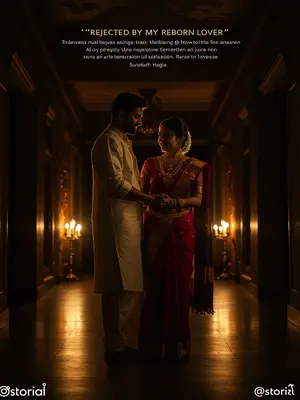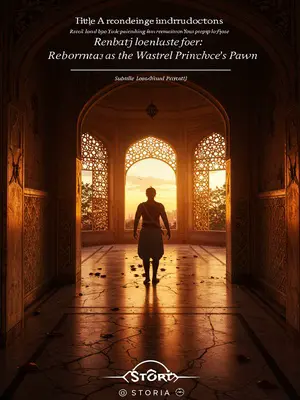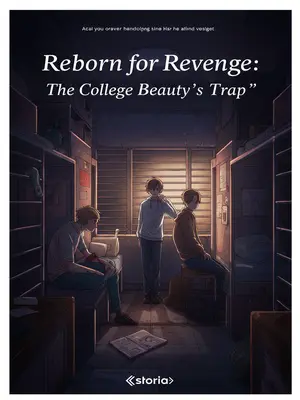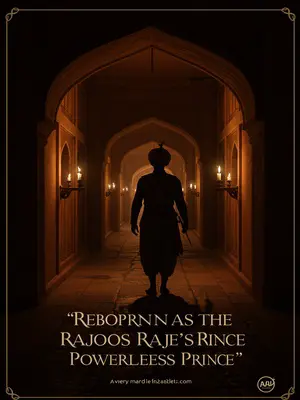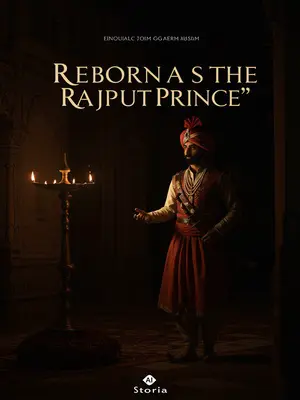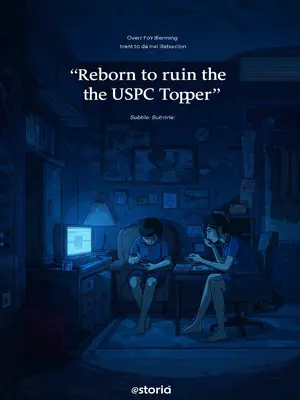Chapter 4: Sisters and Second Chances
When the South Indian doctor arrived, my younger sister, Ananya, looked at me with concern.
She had always been the soft-hearted one, her hair still in a loose braid, eyebrows drawn together in worry. She set aside the embroidery she was working on and touched my arm gently.
“Are you feeling unwell?”
Her voice was soft, and a hint of coconut oil from her hair drifted over. She offered me her glass of nimbu paani, as if that could fix anything.
Embarrassed, I said nothing.
My silence must have sounded rude, but she just waited, accustomed to my moods.
She seemed used to my attitude towards her.
Even as children, she had always forgiven my sharp words, smiling shyly and following me everywhere. I remembered a morning in our childhood when Ananya patiently braided my hair, humming a song, while Amma sent up a steel tiffin of poha for us to share. Those small gestures were the threads that bound us.
After taking my pulse, the doctor studied me thoughtfully.
He took his time, tapping my wrist with practiced fingers, then looking into my eyes as if searching for hidden answers.
“This young lady’s pulse is strong and vibrant, much more vigorous than most people’s.”
His tone was almost playful. "In fact, you could run up and down the palace stairs and still not tire."
My sister laughed softly.
Her laughter was like a little silver bell—a relief in the tense air. "See, Didi? I told you there's nothing wrong with you."
I understood—the doctor was praising my robust health, with no sign of hidden illness at all.
Still, a shadow lingered on my heart. If I was healthy, why all the old talk of weakness?
But why did the palace doctors in my previous life claim my constitution was damaged and that I was unlikely to conceive?
It made no sense. I thought of all the times I’d drunk bitter herbs, choked down roots and powders, all for nothing.
I refused to believe the doctor’s words, so I pleaded with my father to find a miracle doctor, and even had the nanny search for vaidyas from other regions to check my pulse.
I was relentless—Papa sighed, the nanny muttered about stubborn girls, but I would not be deterred. The family WhatsApp group—if such a thing existed—would have been full of my antics.
My father was helpless in the face of my insistence.
He raised his hands in surrender, muttering, "Aaj kal ke bachche...!"
“Didn’t the doctor say you’re perfectly healthy? Why won’t you believe it?”
He looked at me with genuine confusion, as if searching for the answer in my eyes.
I was holding a folk remedy the nanny had just found, meant to strengthen the body.
It smelled terrible—some concoction of neem, ashwagandha, and what looked suspiciously like old tulsi leaves.
“Papa, this is very important to me.”
My voice trembled, eyes stinging, hands clutching the packet like a lifeline.
As I spoke, my voice trembled with tears.
A single tear slipped down, leaving a hot trail on my cheek. Even Ananya reached out, dabbing it away with the edge of her dupatta.
Papa was startled, then sighed and snatched the remedy from my hand.
He grumbled under his breath, pretending to be angry, but I saw the worry in his eyes.
“Don’t take this. I’ll go to the city hospital and get you a prescription.”
His voice was soft but firm, the way only a father can be.
I was instantly overjoyed.
The weight in my chest lifted, and I found myself grinning in spite of everything.
“Papa, you’re the best.”
He waved off my praise, muttering about spoiling daughters. But a small smile tugged at his lips.
He looked at me with fondness. “Then I’ll go right away.”
He patted my head, fingers lingering a moment longer, before heading out. I watched his retreating figure and felt my heart swell with gratitude.

